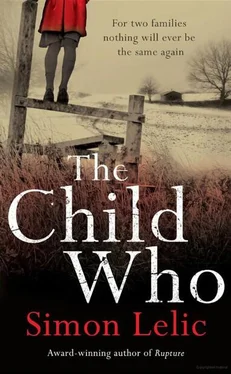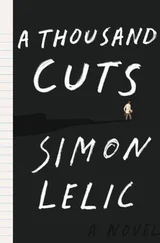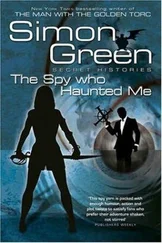Simon Lelic
THE CHILD WHO
‘The men… had come wanting to kill
the kids who’d killed the kid, because
there’s nothing worse than killing a kid.’
Blake Morrison,
As If (1997)
The world seethes.Headlights blaze and horns rage and the drivers behind her, as they broach the outer lane to push past, hurl gestures and obscenities through the rain.
It is calmer within but she does not feel calm. She feels battered, blown off course. The radio is on, though she is no longer tuned to what it is saying. She has her phone in one hand and her head in the other. She is staring at the mobile’s screen: at her husband’s name and a number she has dialled less and less these past ten years.
Did you hear? she could say but of course he will have heard. What happened? she could ask. Then, how did they… ? But he would not yet know any more than she does, nor tell her even if he did.
I’m sorry, she could say. She is not sorry, though; not remotely. And anyway it is not a bereavement, not in a sense that obliges contrition. It is a death but also a release. A culmination. A closing. Congratulations, then. Her sob is almost a laugh.
She lowers the phone and stares at brake lights through melting glass. Then the wipers wipe and the world reforms and she shuts her eyes instead.
A hammering in her right ear startles her. She twitches and her phone drops and there is a face, when she looks, glowering through the window at hers. The face is framed in yellow; all about her is a flashing blue.
This is Brahms, she thinks. On the radio. Brahms or Berlioz. A lullaby, either way, and all of a sudden she has never felt so tired. It is over, then. They found him, they killed him. It is as definitive an end to things as there could ever be. So why, she asks herself, does it feel like another beginning?
The police car trails her all the way to her turn-off. When her exit approaches she indicates far too early. She eyes the unmarked BMW behind and contemplates switching the indicator off again. Instead she suffers its tut-tutting and wills the queue for the exit to pick up pace. Still the police car follows her. It joins the exit lane too and she grips the steering wheel tighter but at the roundabout the BMW dials past her and finally she allows herself a breath. She unsticks her hands from the wheel and shuffles in her seat. For the rest of the journey home, her attention is as much on the view behind as it is on the tarmac ahead.
The kitchen is dark and she leaves it dark until she gathers the will to boil an egg. The shell is fiddly, though, and scalds her fingers and in the end she cannot be bothered with it. She slides the plate away, toast and egg cup and all, and pulls her mug of tea and cigarettes nearer. Her phone, too. She checks the screen, just in case she has missed a call, even though the house is silent and the phone has barely left her grip. And, anyway, why on earth would he call her ? She is the last person on earth he would think to call.
She would turn on the radio but she could not cope with it. There will be nothing new, she is sure. Just gossip and guesswork and a story re-told by those who have no business telling it. Also, she does not want to hear the name: his name, the child’s.
‘Sod it,’ she says. She scrolls and finds her husband’s number and hits call before she can change her mind.
It does not even ring. It goes to voicemail. She hangs up but then dials again because voicemail might actually be no bad thing.
‘Leo? It’s Megan. Meg. I hope… I mean, I realise it’s been a while since we spoke but… I’m calling to… I’m calling because of the news. I heard, obviously. In the car, on the way home. I had to pull over. Silly really but for a moment I just couldn’t see straight. Partly it was the rain, I expect, because it was raining, you see. But you know that, of course. I mean, you were probably driving in it too because it’s hardly stopped, has it, these past few weeks? I suppose you might be driving now, in fact, because this is about the time you usually… you would usually… Look. Anyway. I was just calling because of the news, as I say, and also to—’
The tone cuts her off.
She walks the house. It starts as something to do that involves anything other than sitting and turns into a procession through what has passed. The living room, for instance: this is where Leo told her. She was seated here, at the bureau, and he was by the door and he was smiling, sort of, but also sweating and he said, Meg, listen, you’ll never guess. But she did. Somehow, after hearing the evening bulletin that day, she just knew.
It is a coincidence, she is almost sure, that she so rarely comes in here any more. The kitchen is enough for her – the kitchen, a bathroom and half a bedroom. The other rooms, including the living room, she only ever enters to clean. Which is the pinnacle, now she thinks of it, of absurdity.
She should sell the house, really. She wanted it once – she fought for it, or was prepared to – but she does not need it. When they bought the place she adored that it was pristine but somehow it seems shabbier now than the Victorian terraces beyond the gates. Cracks border the ceiling, the skirting boards have wilted from the wall. The house settling, Leo called it. And if the house has settled, so has the estate, down into its shallow, overvalued foundations.
Look at the windows. They are uPVC, yellow where once they were white. There is condensation between the panes, as though an unseen face, shrouded by the cold night air, were pressed against the glass and peering in. She turns and closes the door a fraction too late to shut off the memory.
The staircase in the centre of the hallway entices her, its banisters like outstretched arms, but there is just the bathroom and her half a bedroom on the landing – nothing else up there that she is willing, in this mood, to contemplate.
The study: it was his war room. Empty now but for her laptop and some unfiled papers. He was in here late most nights, plotting the course of his defeat. For it was never the outcome that was in question, just the extent of it. Lose big or lose bigger or lose more than you could have imagined. She was engaged then, despite the stakes. She stood here, behind his chair, or perched here, on a cushion of papers.
Please, Meg, I have a system.
Dinner time, Leo, or the system gets it.
That was at the start, though. The joking soon stopped, her visits to his study too. They stopped when it became clear what her husband had got them into.
When Leo calls back she does not answer. She does not trust herself to. She is in the study and in front of her, on the screen of her laptop, is a photograph she has shied away from for years. Like the sound of the child’s name, the image sickens her. I don’t know how, she once told Leo, you can bear to breathe the same air as he does, inhale his… effluence. She struggled to find the right word but felt sure she had struck upon it.
Her revulsion recurs. The photograph, it is true, has been manipulated. The boy’s eyes appear black, slit, pupil-less, his skin bleached of warmth, the shadows that frame him sharpened. It is quite ridiculous, really, how heavy-handedly the image has been altered. Unnecessary, more to the point, when the rot in the boy’s soul was plain to see. Even in the other photographs Leo showed her, the boy, as a child, did not convince. Compared to the image of his victim, for instance, there seemed something within the boy that was contrived, artificial, insincere. Something dormant.
She scrolls and finds a picture of her husband. Not manipulated this one, though it would need to be if the man it showed were to resemble the man her husband has become. So much of that fudge-brown hair and he paid it such little heed. Even for a court appearance – for the most important court appearance of his career – he seems barely to have bothered with a comb. His suit is single breasted and looks, for one of Leo’s suits and as far as she can tell, reasonably sharp – which probably means that at the time it was antipathetic to the prevailing style. Antipathetic to the prevailing style. It sums up Leo’s younger self well.
Читать дальше












